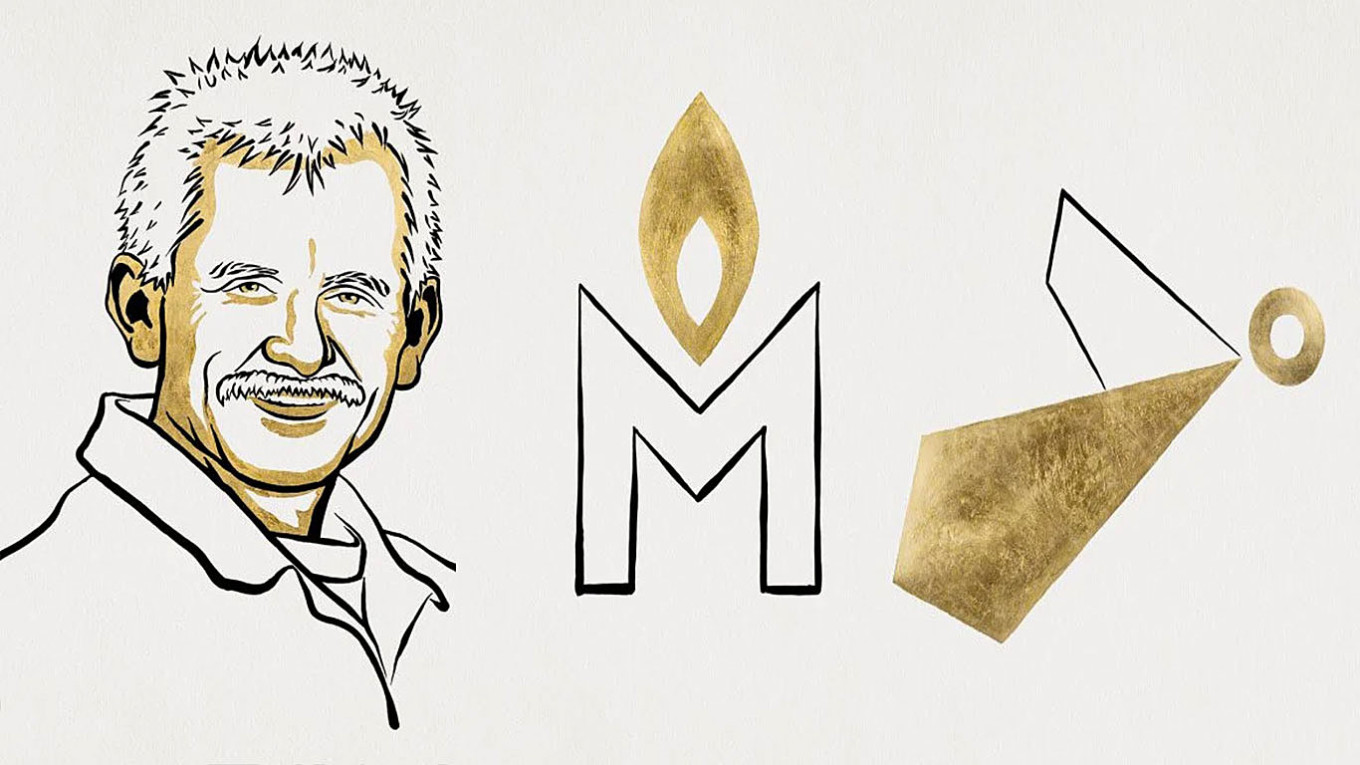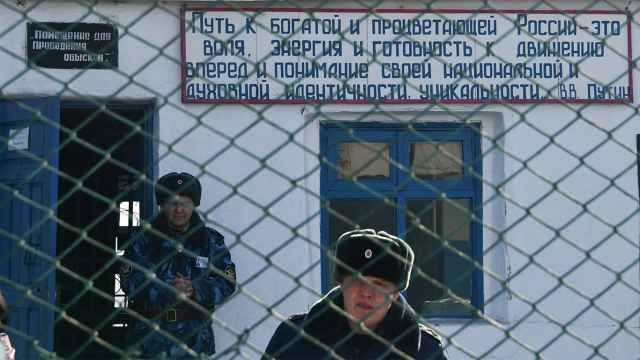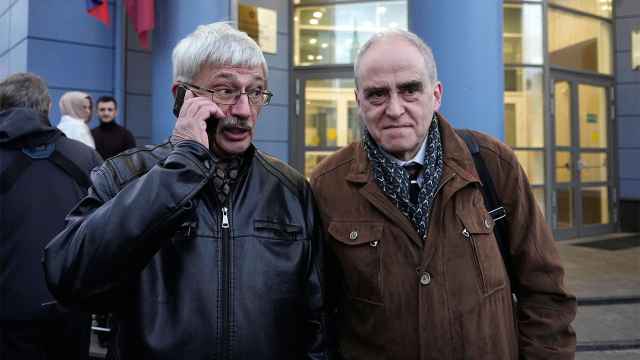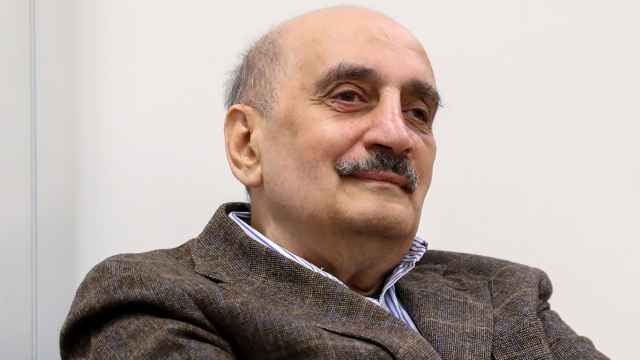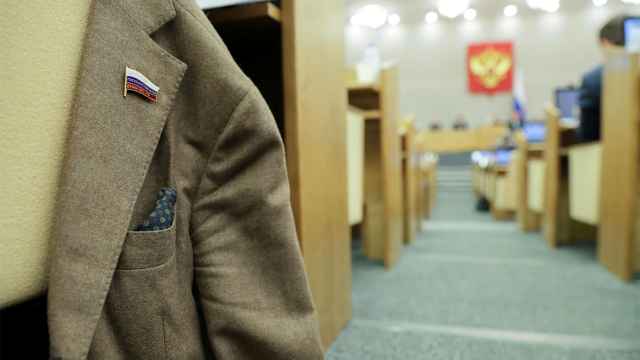The Norwegian Nobel Committee on Friday awarded the 2022 Nobel Peace Prize to Russian, Ukrainian and Belarusian human rights champions.
Russia's Memorial group, Ukraine's Center for Civil Liberties and jailed Belarusian rights activist Ales Bialiatski share this year’s prestigious award.
“They have made an outstanding effort to document war crimes, human rights abuses and the abuse of power. Together they demonstrate the significance of civil society for peace and democracy,” the head of the Norwegian Nobel Committee, Berit Reiss-Andersen, told reporters.
The committee stressed that its choice of prize recipients was not directed at Russian President Vladimir Putin, who launched an invasion of Ukraine in February and has overseen a sweeping crackdown on dissent in the months since.
Memorial, which was founded in 1987, is one of Russia’s oldest civil rights groups and was initially led by Soviet dissident Andrei Sakharov, also a Nobel Peace Prize laureate. The group chronicled Stalin-era purges and exposed human rights abuses in present-day Russia.
Last December, Russia’s Supreme Court ordered the shuttering of the group for repeatedly violating the country’s "foreign agents" law.
No sooner had the award been announced Friday than a Moscow court ordered the seizure of Memorial's headquarters in the city and for the venue to be "turned into state revenue," the Interfax agency reported.
"This prize gives moral strength," said the head of Memorial, Yan Rachinsky, adding that this was "very important" in "depressing times."
Memorial representative Oleg Orlov said it was a "huge honor" to share the prestigious award with Ukraine's Center for Civil Liberties.
The Center for Civil Liberties was founded in 2007 to promote human rights, democracy and solidarity in Ukraine. Since the beginning of the Russian invasion of Ukraine, the group has worked to investigate suspected Russian war crimes against Ukraine’s citizens.
The Ukrainian presidency called the people of Ukraine, under Russian attacks since February, "architects of peace" following the Nobel Peace Prize announcement.
"The Ukrainian people are the main architects of peace, in which we must be able to exist without aggression," presidential chief of staff Andriy Yermak said on social media.
Bialiatski, 60, a prominent Belarusian human rights activist, founded the Minsk-based Viasna human rights center in 1996 to provide support for political prisoners. He was arrested in 2021 on charges of tax evasion and remains in Belarusian prison without trial.
Belarusian opposition leader Svetlana Tikhanovskaya hailed the decision to award the Nobel Peace Prize to Bialiatski, calling it a “recognition for all Belarusians fighting for freedom and democracy.”
The Nobel Committee also called for Bialiatski's release.
The government in Minsk however denounced the Committee, saying its founder Alfred Nobel was "turning in his grave" for handing the prestigious peace prize to Bialiatski.
"In recent years, a number of fundamental decisions of the Nobel Committee are so politicized that, excuse me, Alfred Nobel is tormented and turning in his grave," foreign ministry spokesman Anatoly Glaz said on Twitter.
EU chief Ursula von der Leyen saluted the "courage" of this year's Nobel Peace Prize winners.
"The Nobel Prize committee has recognized the outstanding courage of the women and men standing against autocracy. They show the true power of civil society in the fight for democracy," von der Leyen said on Twitter.
The prize comes with a gold medal, a diploma and a total prize of 10 million Swedish kronor (about $900,000).
The award will be presented at a ceremony in Oslo on Dec. 10, the anniversary of the 1896 death of the prizes' creator, Swedish inventor and philanthropist Alfred Nobel.
Last year’s Nobel Peace Prize was awarded to Dmitry Muratov, the editor-in-chief of Russia’s Novaya Gazeta, along with Maria Ressa, the co-founder and CEO of Rappler in the Philippines.
AFP contributed reporting.
A Message from The Moscow Times:
Dear readers,
We are facing unprecedented challenges. Russia's Prosecutor General's Office has designated The Moscow Times as an "undesirable" organization, criminalizing our work and putting our staff at risk of prosecution. This follows our earlier unjust labeling as a "foreign agent."
These actions are direct attempts to silence independent journalism in Russia. The authorities claim our work "discredits the decisions of the Russian leadership." We see things differently: we strive to provide accurate, unbiased reporting on Russia.
We, the journalists of The Moscow Times, refuse to be silenced. But to continue our work, we need your help.
Your support, no matter how small, makes a world of difference. If you can, please support us monthly starting from just $2. It's quick to set up, and every contribution makes a significant impact.
By supporting The Moscow Times, you're defending open, independent journalism in the face of repression. Thank you for standing with us.
Remind me later.


